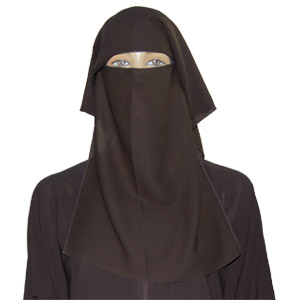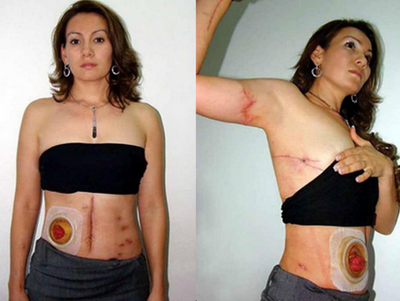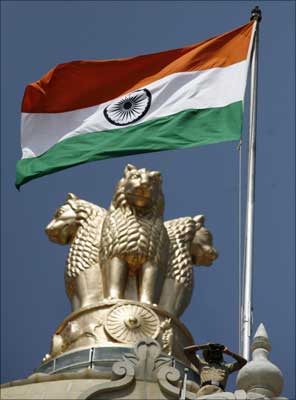 Not too long ago, French President Nicholas Sarkozy announced in front of the French parliament that the so-called “Islamic” face covering – Niqab – [not to be confused with the veil: Hijab] is a “sign of [women] debasement” that should be outlawed in France.
Not too long ago, French President Nicholas Sarkozy announced in front of the French parliament that the so-called “Islamic” face covering – Niqab – [not to be confused with the veil: Hijab] is a “sign of [women] debasement” that should be outlawed in France.
Sarkozy stated that the French cannot expect the effort to isolate women from society the way such a face covering does. The French parliament soon after established a commission to review the Niqab [which is the proper term as opposed to Burqa] and make recommendations. If it is banned, it will not be the first time the French government put restriction on “Islamic” wear.
Under President Chirac, at the behest of a similar commission it banned the Hijab from public schools. Although all religious symbols were banned, the law was clearly intended for the Hijab. But that law was just for public schools and did not apply to all arenas, which the Niqba ban will:
Jean-François Copé, parliamentary leader of the ruling UMP party, this week submitted a draft law stating that “nobody, in places open to the public or on streets, may wear an outfit or an accessory whose effect is to hide the face”. A few exceptions would be made, he said, such as for carnivals. At other times, anybody refusing to take off a face-covering could be fined €750 ($1,090). He hopes parliament will debate the draft at the end of March, shortly after the regional elections.
Just because there is now parliamentary action is not to say that the Niqba is popular in France. On the contrary it is extremely rare:
Today, according to intelligence estimates, some 1,900 women wear the niqab in France [out of millions of Muslim women].
Unlike the banning of the Hijab, which provoked outrage amongst French Muslims and rightly so, the Niqba banning is drawing support:
For six months, a cross-party parliamentary inquiry has been holding hearings about the burqa. One by one, French Muslim figures have filed in to state that, as Dalil Boubakeur, rector of the Paris Mosque put it, “neither the burqa, nor the niqab, nor any all-over veil, are religious prescriptions of Islam.”
Moreover, as Dounia Bouzar, a French Muslim anthropologist, pointed out to the commission, most of the women she sees wearing the niqab are young. Intelligence sources suggest that 90% of them are under 40. Two-thirds are French nationals, half of them second- or third-generation immigrants, and nearly a quarter are converts. In other words, this is not an influx of women from the Gulf, but a statement by young French Muslim women, whose own mothers did not cover their faces. Mr Boubakeur and other mainstream French Muslim leaders are clear about its origins: it is “an invasion of salafism”, an ultra-puritan branch of radical Islam.
Although I am opposed to the Niqab and am irritated by the sight of it, because it is unfounded in Islam and is used to isolate women from society by misogynist men; nonetheless I oppose Sarkozy’s effort because banning women from wearing what they please on the streets is totalitarian. Nothing more than a fascist policy of police stopping women on the streets and forcing them to change their wear is what Sarkozy is calling for. Such a policy is the antithesis of a free society and should be opposed on principles of freedom and liberty.
The Niqab should be gradually phased out in all societies as nothing more than a vile manifestation of extremism and sexism, but the way to discourage the wearing of the Niqab is to speak out against it. And to integrate all Muslims into French society so that nearly all of them, and most of them already do, embrace universal values of liberalism, engagement and respect for women.
And it is nice to see prominent Muslims openly speak out against it. But this message needs to be heard not just in front of a parliamentary commission, but in front of those Muslim women and their Muslim male peers who support the Niqba.
Fortunately, most French Muslims are so opposed to the Niqba they do not need convincing that it is an unwarranted style of dress.




